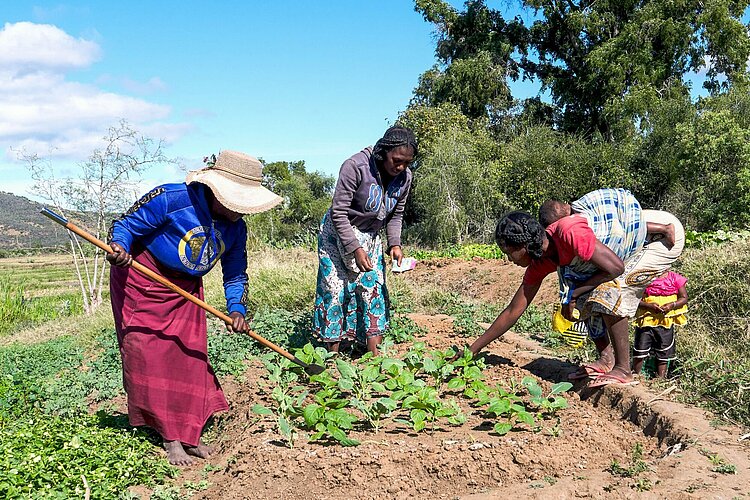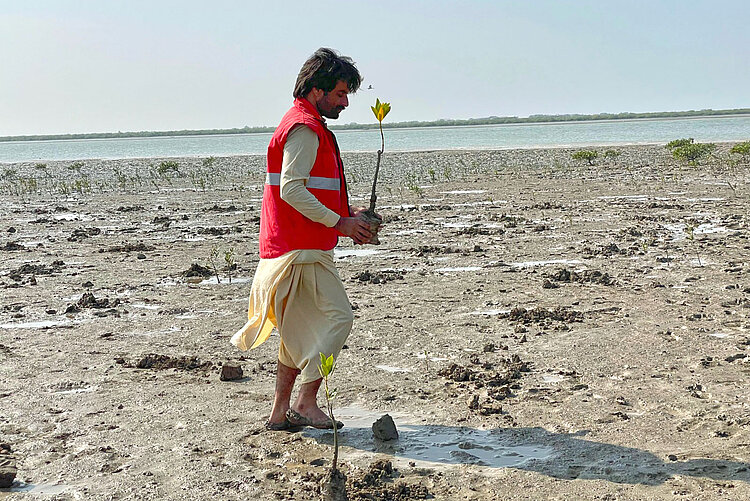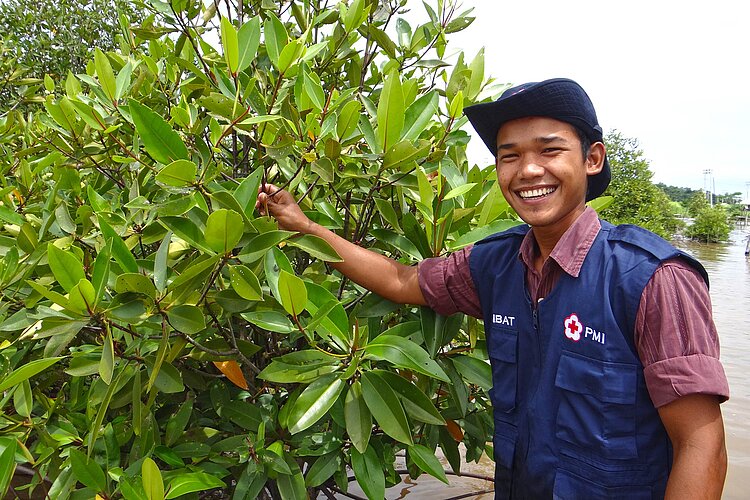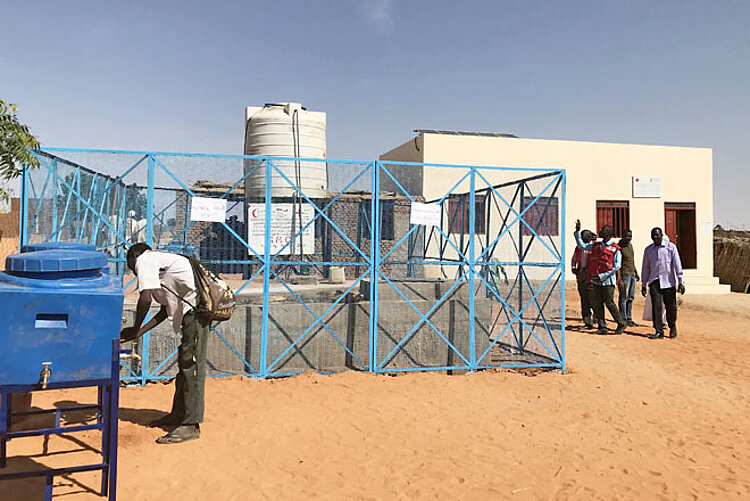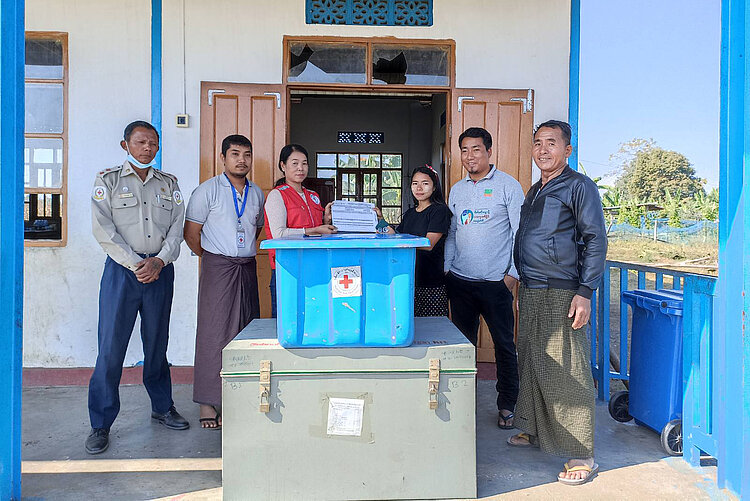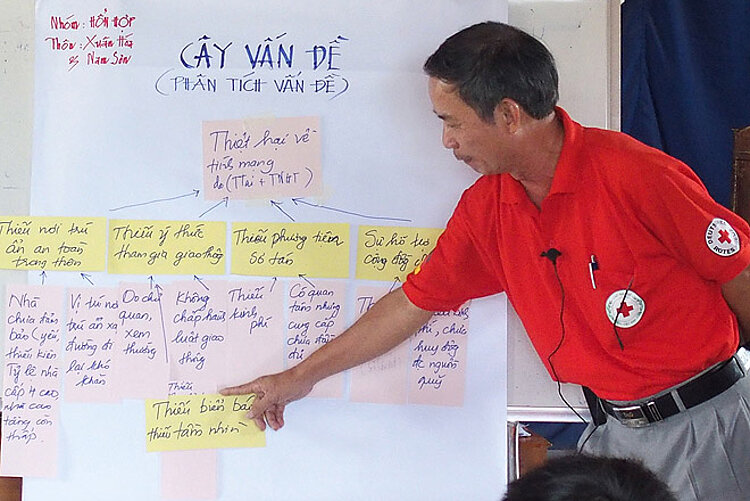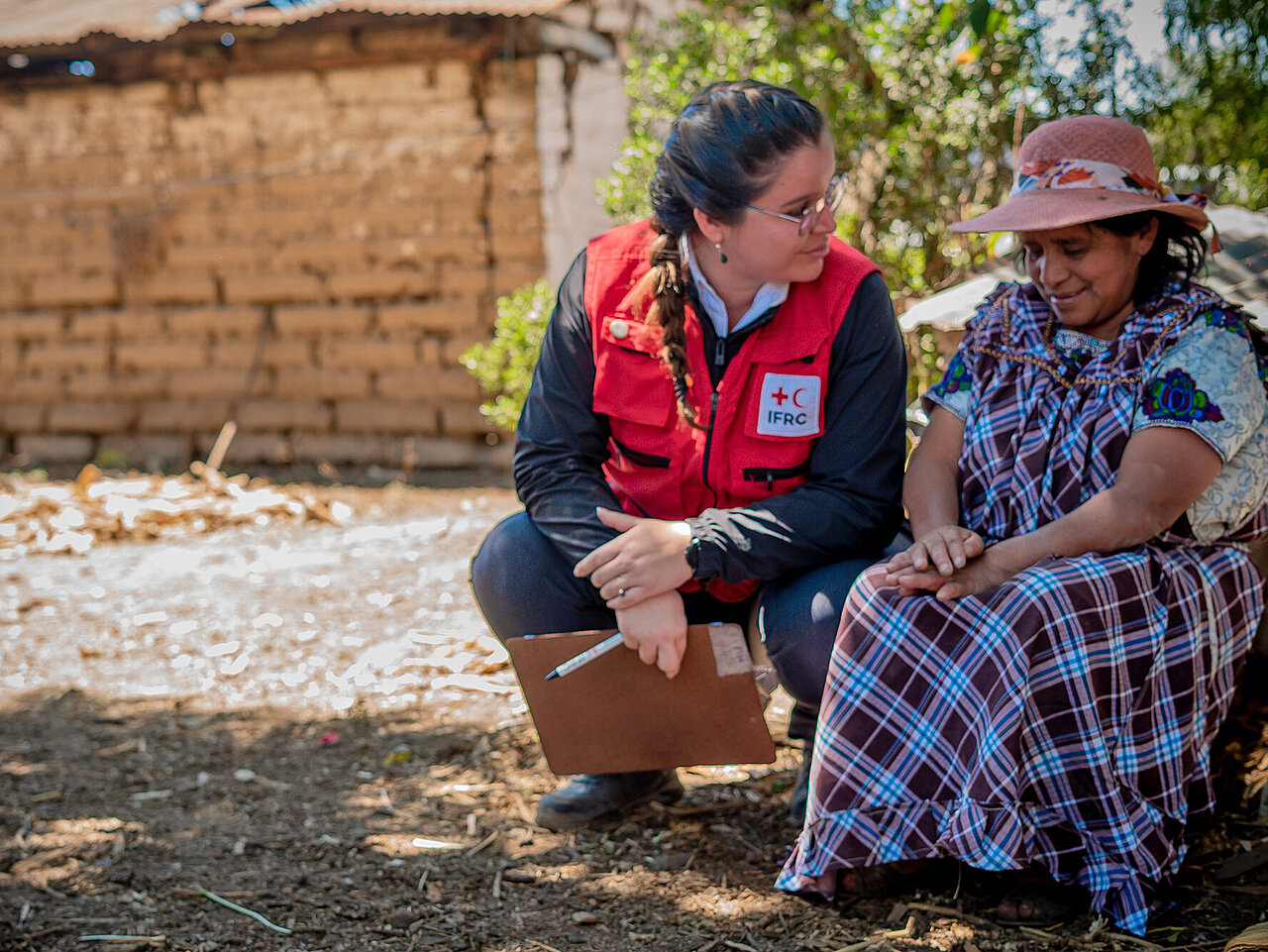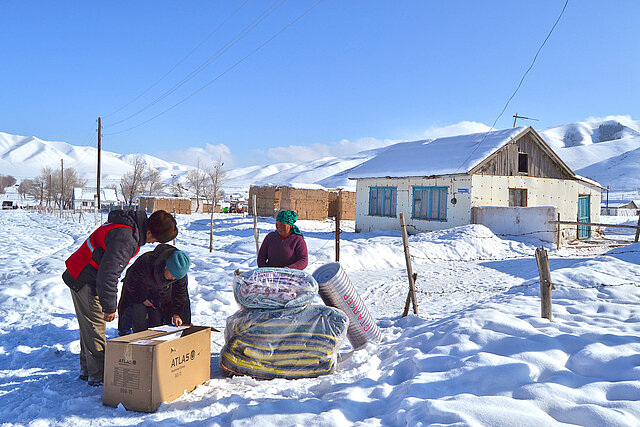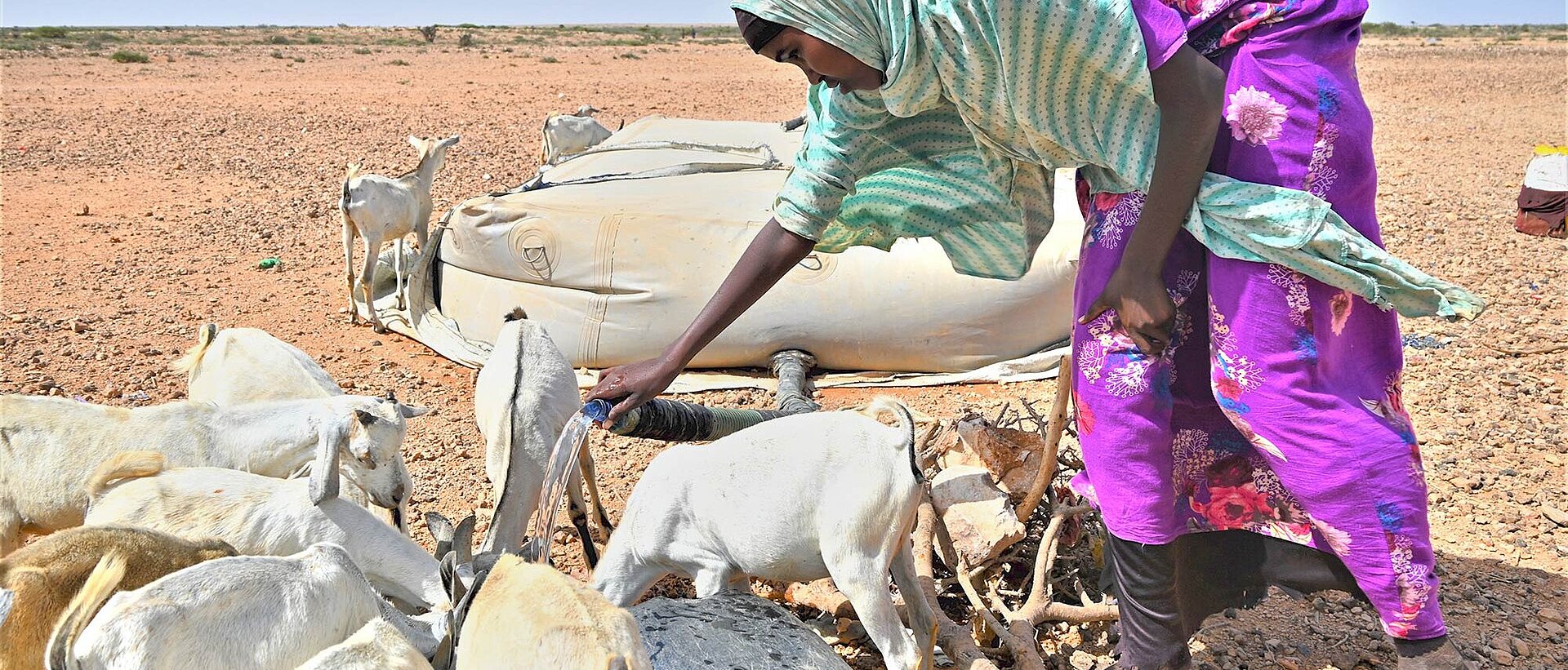
Strengthening resilience to climate change
The climate crisis affects us all – but countries in the Global South are hit particularly hard. We are working worldwide to counteract the negative humanitarian consequences of climate change through climate adaptation and disaster risk reduction projects.
Impacts of the Climate Crisis and Climate Justice
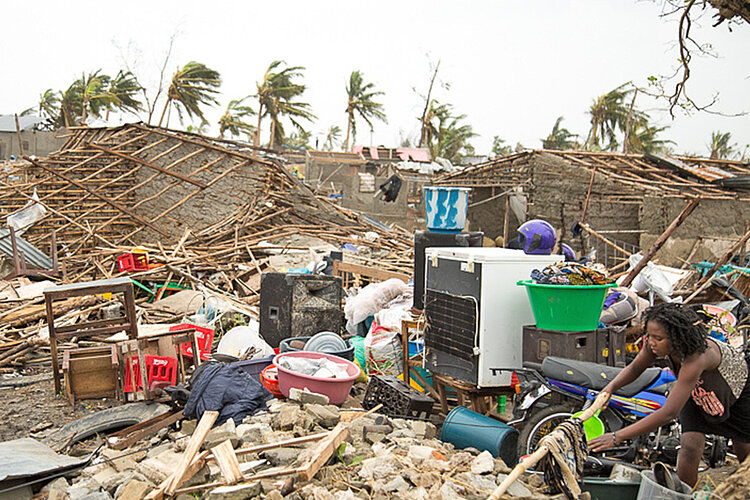
Extreme weather and natural disasters such as prolonged droughts, floods, and cold waves have massive impacts on health and livelihoods of those affected. Particularly in countries in the Global South people lack resources for damage management and climate adaptation. Recurring extreme weather events lead to destroyed infrastructure, water and food shortages, and increased disease outbreaks. These conditions are a catalyst for social conflicts, migration, and refugee movements.
Within individual societies, certain population groups are more severely affected by natural disasters: Women, for example, lose their lives more frequently because, among other things, they have less access to information and escape routes. The varying vulnerability of entire regions and countries, as well as individual social groups, clearly shows that the climate crisis entails injustice. Responses to the climate crisis therefore always also imply the aspect of climate justice, for example, by ensuring that vulnerable people are entitled to special protection.
Source: bpb
Strengthening Climate Resilience
Reducing damage and suffering for people particularly threatened by the climate crisis and strengthening their climate resilience is an important cross-sectional task for the GRC in its international cooperation.
We cooperate with climate science institutions and, together with Red Cross and Red Crescent Societies, implement climate adaptation projects based on genuine needs to increase the resilience of affected people to extreme weather and disasters. Key areas of focus include the provision of relief supplies, the use of early warning systems, evacuation and emergency plans, measures to improve health and water supplies, as well as the establishment of alternative agricultural methods and diversification of income sources. Moreover the German Red Cross supports anticipatory humanitarian aid programs In more than 20 countries and has been actively promoting the development of innovative approaches such as Forecast-based Financing for years.
